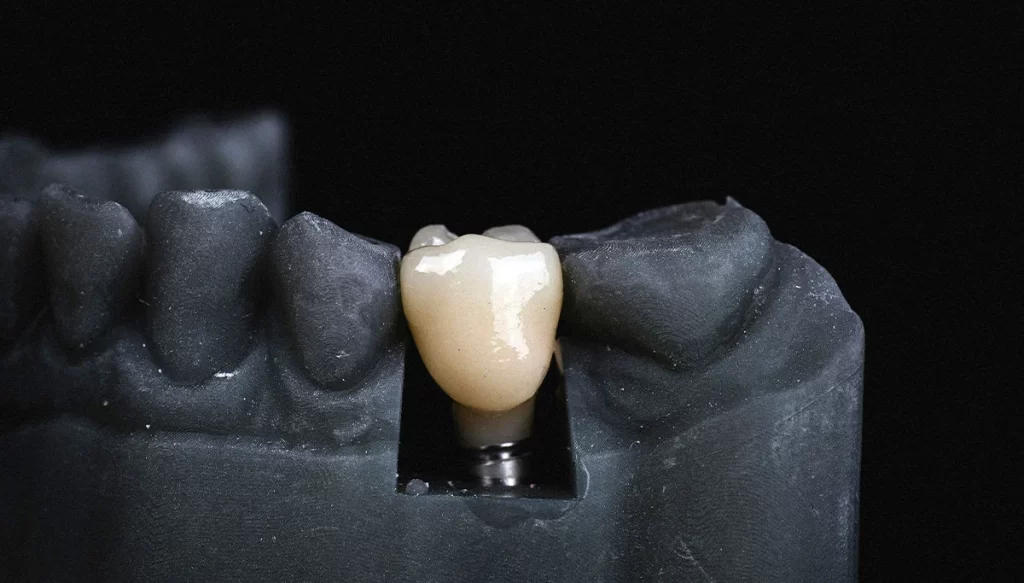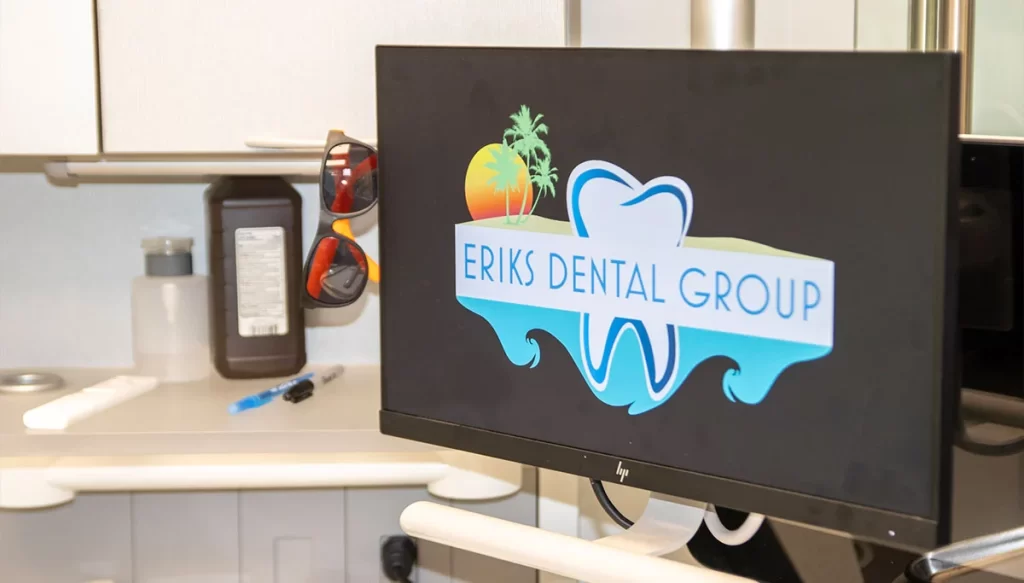- What Is A Dental Implant?
- What Are The Benefits Of A Dental Implant?
- Can Anyone Have An Implant?
- What If I Don’t Have The Required Bone Mass?
- How Does The Dentist Determine Your Bone Health?
- Are There Different Types Of Dental Implants?
- What Happens During The Implant Procedure?
- Are the Procedures Painful?
- How Do I Take Care Of My Implants?
- Are There Any Complications From Implants?
- Dental Implants In Boynton Beach
The discovery of implant technology, followed in 1982 by the birth of implant dentistry has revolutionized the way lost teeth are replaced. In the past dentures and bridges were the main options for teeth replacement. These days a person you can have the option of teeth replaced with dental implants.
Dental implants are an extremely desirable option amazing solution for replacing just one, or all of your teeth. The procedure greatly enhances the patient’s quality of life because you . They can again eat what they you’d like and chew without fear. No more anxiety before giving a big smile. At Eriks Dental Group in Boynton Beach, we specialize in dental implants.
Below are the most commonly asked questions by our patients before having dental implants.
What Is A Dental Implant?

Simply put, a dental implant is a procedure to replace a missing tooth or teeth. A titanium screw is screwed placed into the maxillary jaw, and an artificial tooth is then attached to this screw.
What Are The Benefits Of A Dental Implant?

Tooth loss can cause structural change in the jawbone, leaving you with weaker bones that can shift. This movement can alter one’s facial features and make functions like speaking, chewing, and smiling with confidence difficult.
Dental implants look and work like natural teeth.
They last up to 25 years when properly cared for by brushing and flossing regularly as with your normal teeth. They are far superior to other tooth replacements. They work like normal teeth and feel as comfortable as normal teeth.
Can Anyone Have An Implant?
Individuals of all ages can be suitable for implants with the right jaw bone quality needed to support and stabilize the implant. Without the necessary bone strength, you will likely need a bone graft.
What If I Don’t Have The Required Bone Mass?
A bone graft would be necessary. This is because once the implant is placed into the jaw, it must fuse to the bone by a process known as osseointegration. Without sufficient bone, your implant is likely to fail, feel loose, wobble, and even fall out! Bone loss can be caused by missing teeth that have not been replaced quickly.
Bone loss can cause facial sagging, teeth shifting, and additional tooth loss. Your teeth support one another so, by losing a tooth it has a knock-on effect on the surrounding teeth.
Bone quality is needed to stabilize the initial implant. In the event of a lack of bone, If there isn’t enough bone mass, there are a variety of bone-grafting procedures that can be performed. Fortunately, bone can be harvested from the patient’s elsewhere in the body, from cadavers, synthetic bone, or bone from animals.
How Does The Dentist Determine Your Bone Health?
Your dentist will make conduct a thorough oral examination using X-rays and if necessary, a CBCT scan will be recommended. A CBCT scan uses advanced X-ray techniques. The scan to generate s a complete 3D image of your jawbone. From these imaging tests, your dentist can assess the bone quality where your implant will be placed.
Are There Different Types Of Dental Implants?
Yes and no. The procedures are slightly varied but the outcome is the same. There are three main methods used. Your dentist will make a recommendation following a thorough examination of your mouth and oral health. A decision will be based on your jawbone condition and oral health. Once that is complete your dentist will be able to recommend the best course type for you.
1. An Immediate Dental Implant
The implant is placed straight after extracting the tooth. The benefit is a shorter rehabilitation period and it also avoids the necessity of additional surgery
2. Recent Dental Implants
The extraction is followed by approximately a six to eight-week wait before the implant is placed.
3. Deferred Implants
Also known as a delayed implant following an extraction. Dentists recommend this to allow your bone to regenerate and fully heal. This can take between 3-6 months before the bone is considered robust enough to place the implant.
What Happens During The Implant Procedure?
Traditionally, the method consists of two procedures with a three to six-month waiting period between them while osseointegration osseointegration takes place.
Procedure One
The first procedure will consist of a small incision made into the gum at the location of the implant. A hole is drilled into the bone and the implant is placed into the hole. The incision is then stitched closed.
Procedure Two
6 – 12 weeks later once healing has taken place, your dentist will make a new incision to expose the implant. The abutment is then screwed into the implant. The abutment supports the crown.
A temporary crown is placed on the abutment and will remain in place for about six weeks. During this time your permanent crown will be made using a model of your teeth. The crown is made from ceramics or porcelain that is fused onto metal.
The final C crown is cemented or screwed onto the abutment. Cement can look superior as the screw hole in a crown cannot be seen. The advantage to having it screwed in is that your dentist can easily access the implant or the surrounding tissue.
Are the Procedures Painful?
Generally not. We take great care to ensure our patients are pain-free during procedures and we use various methods of pain management.
How Do I Take Care Of My Implants?
Maintaining your implants is very important. Implants can give rise to gum problems and bone loss in the same way way as natural teeth, so they need to be flossed and brushed like natural teeth.
Are There Any Complications From Implants?
As with any other medical procedure, things can go wrong. More common complications include:
- A bacterial infection in the gums which is treated with antibiotics
- Gum recession. Sometimes, the gum-tissue surrounding the implant begins to recede, which can then cause inflammation and pain. This requires an immediate visit to your dentist for treatment.
- The I implant becomes loose and does not fuse to the bone: The implant may have to be removed.
Dental Implants In Boynton Beach

Dental implants can change your life. They function like normal teeth and look totally natural. You can enjoy all your favorite foods without fear and . Y your smile can be restored . is lovely so your confidence soars. Your speech greatly improves if you have been using dentures that cover the palate. If you would like to explore having a dental implant, don’t hesitate, to call Eriks Dental Group in Boynton Beach today, and to make an appointment at 561-733-4004.

